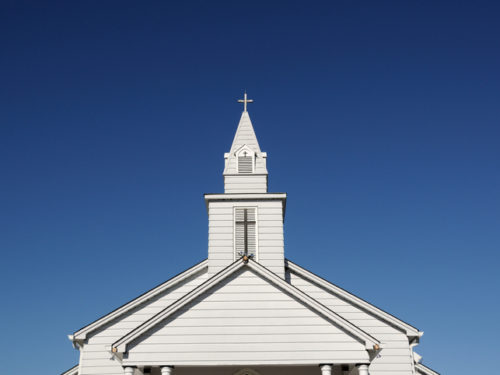Often when someone older joins our congregation, they will be very concerned with making sure their ‘letter of transfer’ is properly handled. It is almost like you are dealing with an agency of the Federal Government and they must present proper ID in order to verify their faith and be fully welcomed into our fellowship.
This is actually not so far from how ‘letters of transfer’ used to work. It used to be that church leadership would not allow someone to transfer to another congregation without good reason or if that particular person was being ‘disciplined’ for some offense. Presbyterians would also usually not transfer members to Baptists and Catholics. Quite often the Session minutes from other centuries will reveal at least a handful of people who were not allowed to transfer to another congregation despite their great desire to do so.
This speaks to the role that elders used to play for congregations, taking very seriously the spiritual health of individual members, even to the point of doing something as socially awkward as not releasing them to worship somewhere else.
We can certainly debate the merits of this practice but more it more important to ask, “How can elders and sessions today show a similar concern for the spiritual health of individuals?” Most elders today are preoccupied running programs and managing church assets. This is a huge change not only from thousands of years of practice but the biblical witness as well. A History of the First Presbyterian Church of Dayton, Ohio, published in 1880, describes the role of elders: “Their most important function is to watch over the flock of which they are under-shepherds-guarding, counseling, comforting, instructing, encouraging, and admonishing, as circumstances may require.”
What are some simple ways that elders today, without a major reorganization of the session, can immediately reclaim the historic, biblical role of shepherding people and making disciples?
- Elder-led Bible studies and small groups: Many of the elders at the congregation I serve also lead Bible studies and small groups. When they become elders, we encourage them to continue. This is a way to get elders not only into the word but into relationships with people in the church and community. To facilitate and encourage this practice, pastors may want to consider spending significant time in Bible study at the session meeting or hold a separate Bible study with elders.
- Assign elders to individuals and not to programs or committees: For years, many congregations have assigned families to elders and encouraged them to be their shepherd. Unfortunately, this has usually been for the purpose of keeping the family involved and connected with the congregation. Given the crush of other responsibilities, all the elder has time to do for the dozen or more families in his or her charge is make a phone call once a year. Mere involvement in the church is not the biblical model and does little to build the Kingdom of Jesus Christ. Even more so, individuals usually do not disciple entire families. They disciple individuals. If our goal is to ‘grow to the measure of the stature of the fullness of Christ” (Ephesians 4:13) then we will want to consider leveraging the relationships of our elders to create spiritual growth with the women and men in our congregation. Bigger congregations may want to consider assigning elders to individuals in their leadership core.
- Involve elders in welcoming and embracing new members: This can be done by having elders play an important role in a new member’s class, following up with new members at three and nine months after they have joined, leading new small groups consisting of new members and even introducing new members to the congregation rather than having the pastor do it. People often join a church because of a pastor, but they grow in their walk with Jesus because of the relationships they have with other members.
- Initiate a session-led, hands-on mission project encouraging the congregation to come alongside: Hands-on mission in our culture is a great opportunity for discipleship. Many people are looking to make a difference in the world and create community at the same time. Even many non-Christians are perfectly willing to serve a worthy cause. Mission, in our day and age, tends to facilitate discipleship rather than the other way around. Culturally our love language now tends toward doing for others. The Church needs to take advantage of this rather than be threatened by it. By embracing hands-on mission, the elders also make a great statement about its priority in their walk with Jesus.
- Have elders conduct exit interviews with members who are departing: Most people who leave churches are ushered out the door under the cover of darkness. At most, pastors may get a question or two about “Whatever happened to so and so?” Elders can not only demonstrate love and care but also learn a great deal by having a 30-minute conversation with departing families who are willing to do so. Sharing this duty among the elders also eases the burden of congregational care upon the pastor and helps him or her to not feel solely responsible and burdened for every family who chooses another congregation. Elders, in this context, might also be able to say things or hear things a pastor cannot.
- Train elders to do pastoral care: This, of course, is a Biblically mandated practice, according to James 5:14. Even if the elders do not anoint with oil, the spirit of the passage is to place the elders on the front line of those seeking care and healing. The biblical model is for the pastor to not be the only one who provides care for the sick and the lonely. Elders can most effectively shepherd and lead when they are in touch with people at their weakest and most vulnerable.
- Practice intercessory prayer for the congregation and community: Most Sessions practice what I call “Polite Presbyterian Prayer” or PPP for short. We ask for requests and someone mentions their cousin having surgery or their neighbor who is going through a difficult time. We bow our heads for 90 seconds and call it a day. Let me emphasize that there is nothing wrong with this practice! This is good stuff and necessary. But that is not all we are called to do. Ministry devoid of intense prayer is like running a chain saw without ever pulling the cord. It’s heavy and burdensome and it does not do what it is designed to do. Intercessory prayer unleashed seeks the dismantling of powers and principalities, obliteration of strongholds, the repentance of hearts and minds, raising up of the downtrodden and pouring out of the Holy Spirit.
Clearly the practice of elder is different than it used to be (and many would say diminished as well). Reorganizing a session from head to to toe to adopt a ‘shepherding’ model may prove daunting indeed. But picking up handful of these seven practices may help clear the way to expanding our vision of what elders can and should be for Jesus’ Church.
If you are interested in developing your elders into shepherds who are effective spiritual leaders that transform the way they lead the church, please contact me about ELI- Elder Leadership Institute. ELI is a resource that is done locally, in your own church, and provides communal, experiential, Spirit-led content that intends to transform rather just inform. We would love to partner with you so that your church can flourish in new ways!
Eric Laverentz, Assistant Director of ELI
Senior Pastor, Cornerstone Presbyterian Church
ericl@cornerstoneks.org
www.elderleadership.org
Share +
 Uncategorized
Uncategorized
 Uncategorized
Uncategorized
 Uncategorized
Uncategorized
 Uncategorized
Uncategorized
 Uncategorized
Uncategorized